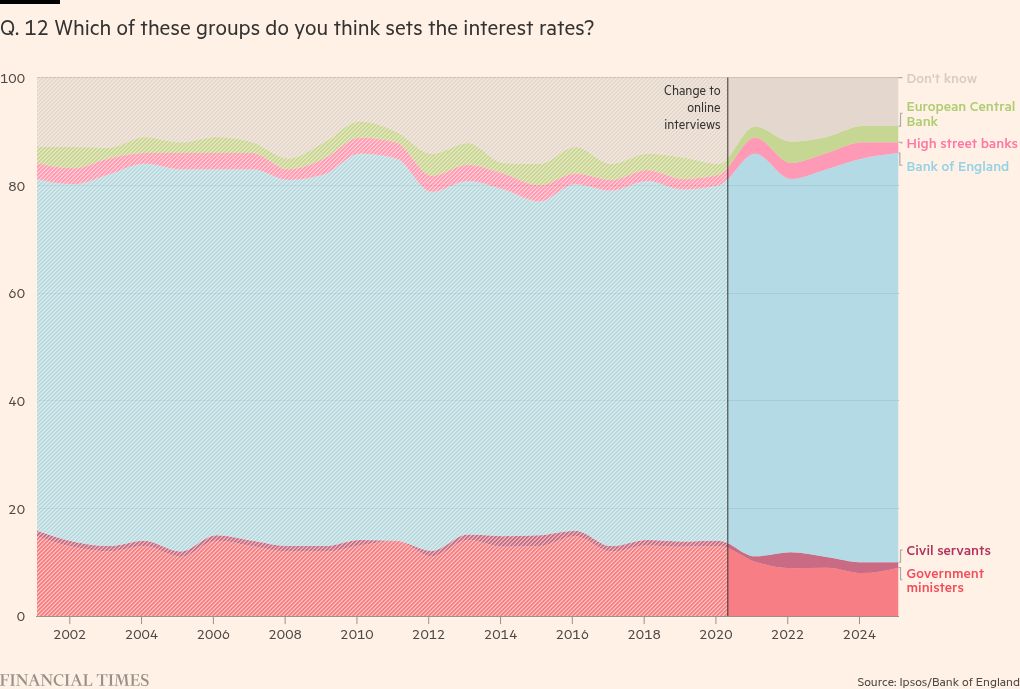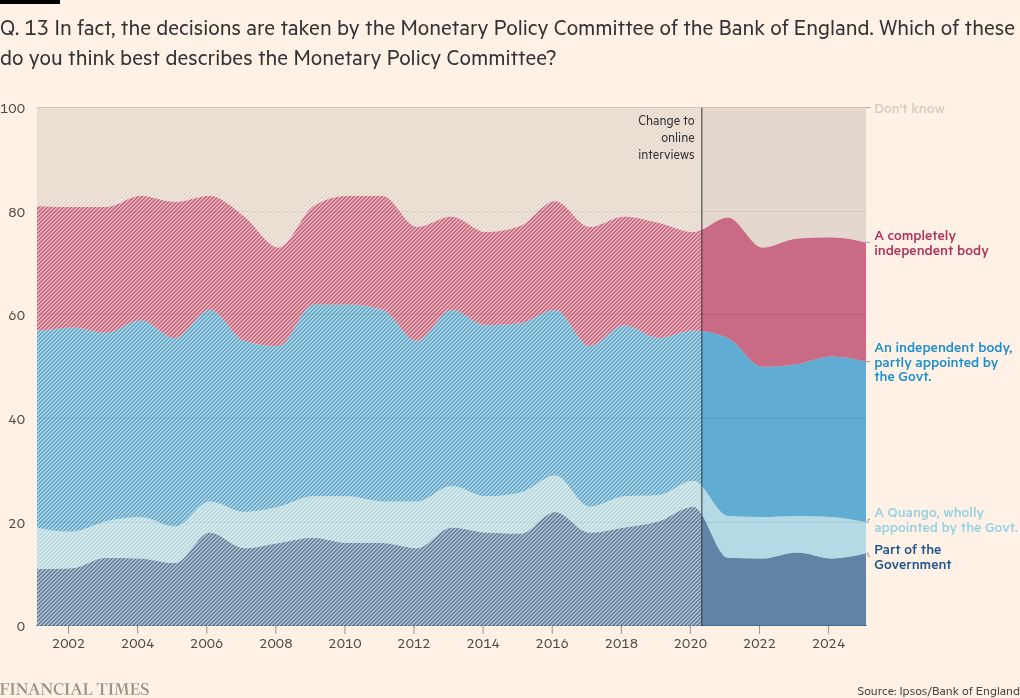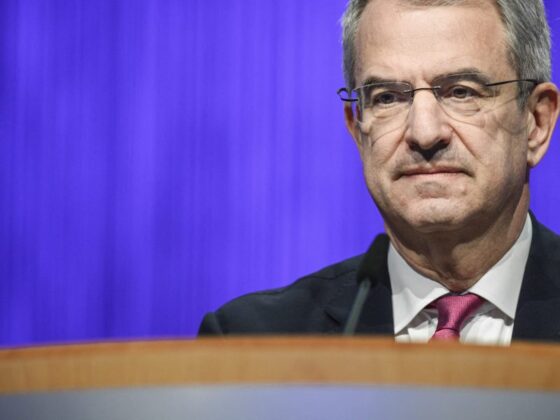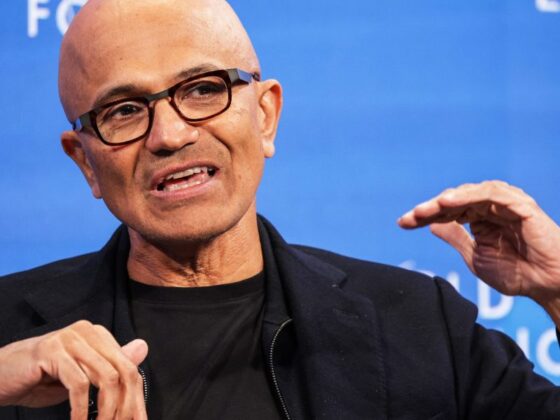Unlock the Editor’s Digest for free
Roula Khalaf, Editor of the FT, selects her favourite stories in this weekly newsletter.
The Bank of England’s Inflation Attitudes Survey is:
a quarterly survey of people’s feelings about inflation and other economic variables like the interest rate
From February 2016 to May 2020, it was conducted by Kantar via face-to-face interviews, having previously been carried out by GfK. With the pandemic doing its thing, the survey switched online that quarter, and has continued in much the same way since — albeit with a change of conductor to Ipsos from February 2022.
It is, by central bank survey standards, reasonably funny.
To produce the survey, a sample of about 2,000 people aged 16 to 75 are asked their views about things like future inflation, and more general trivia questions about the UK’s macroeconomic framework — admittedly, ones that are probably too easy for the FT Alphaville Pub Quiz. Probably.
This particular question crops up once per year, in the February edition of the IAS.
And, on one reading, this is a success: the public is apparently now generally aware that the UK’s basic interest rate is either set by the Monetary Policy Committee (the correct answer, we suppose), or at least that it’s got something to do with the Bank of England (which feels close enough).
But things aren’t quite so simple. Next up, respondents are asked:
Question 12 is a weird one in the context of Question 11.
Firstly… why does it need to exist given we have Question 11?
Secondly, given the Bank of England and MPC were separate options in Question 11, shouldn’t they be separate here? Or should “none of the above” be an option?
Thirdly, why is the European Central Bank in there? If Question 12 is read as a standalone, it’s as correct an answer as the Bank of England.
Fourthly, if the question is seen instead as being part of a sequence, why are the public seemingly so much more confident in answering it than Question 11?
Wait… this all just a trap?
Ipsos:

OK, so none of the above, and we’re considering the MPC to be in effect distinct from the Bank of England.
Having been made to feel like idiots, how are the public supposed to answer question 13? Let’s see.
-
Part of the Government: Well, it’s part of the Bank of England, which is owned by the Government, so this is arguably correct. ✅
-
A quango, wholly appointed by the Govt.: Tricky. There’s a lot of debate over what a quango is, but the Bank of England potentially falls within the most generous scope. Within that, however, the MPC itself surely can’t be considered a standalone quango, and its members aren’t wholly appointed by the Goverment, unless we consider the Bank to be part of the Government oh no we’re in a logic loop ❌
-
An independent body, partly appointed by the Govt.: …yes? Right? ✅
-
A completely independent body: Hang on, what’s the difference between independent and “completely independent”? 😰
We’re glad the survey’s online only, as we’d be profusely sweating by this point.
Surely things let up in Question 14?


We give up.















